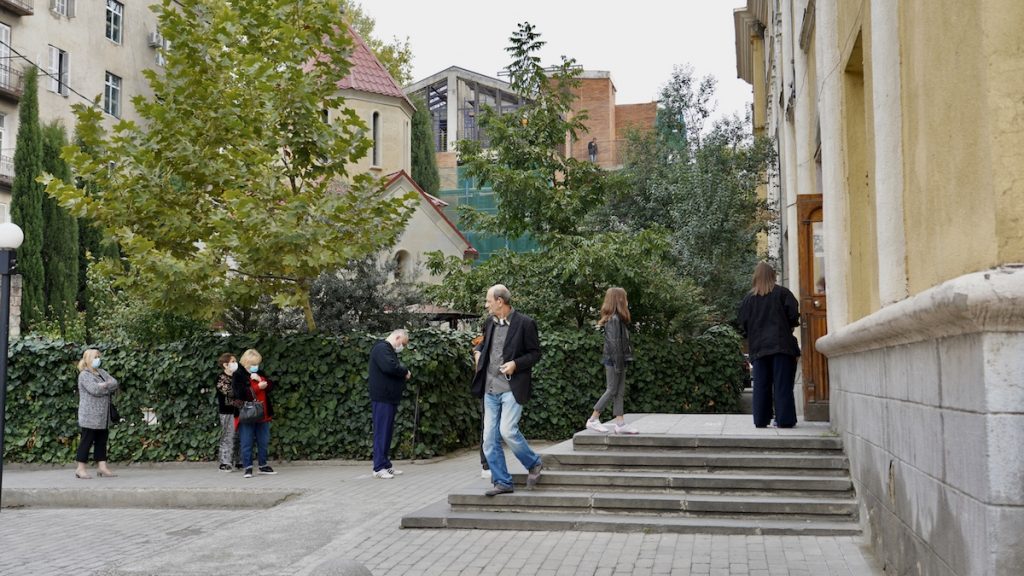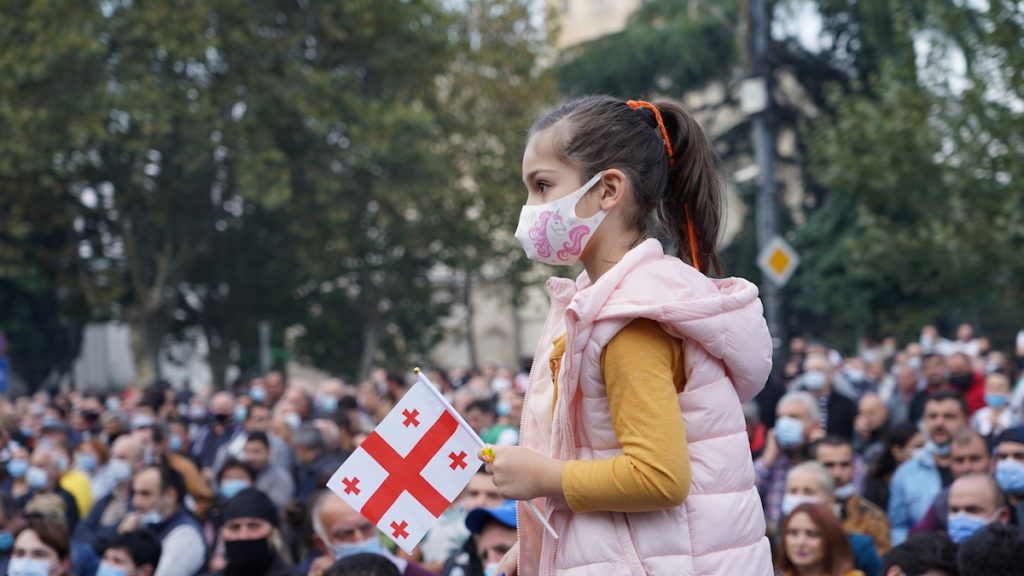Elections in Georgia: boycott, rallies, int’l reaction
The ruling party won the parliamentary elections in Georgia for the third time in a row on October 31.
The opposition claims massive falsifications and refuses to acknowledge the results and is boycottingthe new parliament. International organizations recognized the intimidation and bribery of voters, but still considered that the elections were held “in a competitive environment”. Find out what is happening in Georgia.
Who’s the winner
According to preliminary data of the Georgian CEC, in the parliamentary elections which took place on October 31, the ruling Georgian Dream party won with 48.15 percent of the vote. Its main opponent, the United National Movement – Strength in Unity bloc, was supported by 27.13 percent of voters. Seven more opposition parties claimed parliamentary seats – European Georgia, Lelo, Alliance of Patriots, Strategy Agmashenebeli, Girchi, Citizens and the Labor Party – they collected a total of 18.46 percent of the votes. In total, a list of 60 parties was presented on the ballot papers.
The CEC announced that a second round will be held in 14 majoritarian districts. But its result will no longer be decisive.
•Opposition holding rally in Tbilisi demanding repeat parliamentary elections. Photo
•Play by play of Georgian parliamentary elections – photo, video
•What the flamingos in Ivanishvili’s dendrological park say about Georgia
Who are the parties
The Georgian Dream, the party in power, was founded by billionaire Bidzina Ivanishvili shortly before the 2012 parliamentary elections. Since then, the Georgian Dream has retained a parliamentary majority and also fully controls all other branches of government. Now it’s supposed to become the only party in Georgia elected to parliament for a third term.

In recent years, the position of the ruling party has noticeably shaken, and the motley opposition has managed to unite and mobilize, so many in Georgia expected a different outcome of the elections.
The main opponent of the authorities is the United National Movement founded by the former president Mikheil Saakashvili.
What you need to know about elections
Georgia is a parliamentary republic, therefore the political force that won the elections on October 31 will get to rule the country for the next four years. For the first time, the elections were held under a new system – representatives of political parties staff the main part of MPs (120 out of 150) via a proportional system. The remaining 30 seats are distributed among the majoritarian MP candidates who win in 30 single-member constituencies.
This new electoral system was agreed in the spring of 2020 after nearly six months of large-scale street protests and negotiations between the governmentand the opposition, which would have been impossible without the mediation of Western diplomats.
Election day, count, protest
Contrary to expectations, voters were not scared off by the coronavirus, queues lined up in front of the polling stations.
On election day, journalists reported brawls and even shooting at polling stations, citing evidence of pressure on voters and intimidation.
After the closure of polling stations on Saturday evening, both the authorities and the opposition celebrated victory: each side relied on the data of its exit polls, and they were different.
The CEC was in no hurry to share information – the first figures were announced in the morning on Sunday. Independent observers began to publish online photos of voting protocols on which the numbers did not add up – for instance, the number of votes for the ruling party could significantly exceed the total number of votes in this precinct. Opposition leaders said the elections were rigged, the first protests began at night, and resumed on Sunday – the opposition gathered about 8,000 people in the streets.

Reaction of international organizations
On Sunday afternoon, representatives of the OSCE /ODIHR spoke, saying the elections were not flawless, but, in general, held in a competitive environment.
“Coordinators, party representatives and activists were present at the polling stations and aggravated the situation,” said Jillian Stirk, head of the OSCE/ODIHR election observation mission in Georgia.
The US Embassy in Georgia said that intimidation and bribery of voters are detrimental to the election process, but that it is not enough to declare them illegitimate. Such reaction disappointed and even outraged many in Georgia:
“Maybe President Putin prepared this statement for you?” “How can one recognize the legitimacy of an election in which voters are intimidated?” “And at home, in the United States, would you be satisfied with such elections?” – these are some of the comments of Georgian Facebook users under a statement published by the US Embassy in Tbilisi.
Local NGOs also criticized the elections.

What’s next
On Monday, all opposition parties took turns promising to renounce their seats in the parliament.
“The election results are rigged and do not reflect the will of the Georgian people,” said Badri Japaridze, General Secretary of the Lelo party.
The oppositionists, who have renounced parliamentary seats, demand the elections be annulled, the CEC be disbanded, and re-elections held.
Technically, this boycott will not change anything – Georgian Dream has enough seats both for the new parliament to start working and for it to approve the government.



















